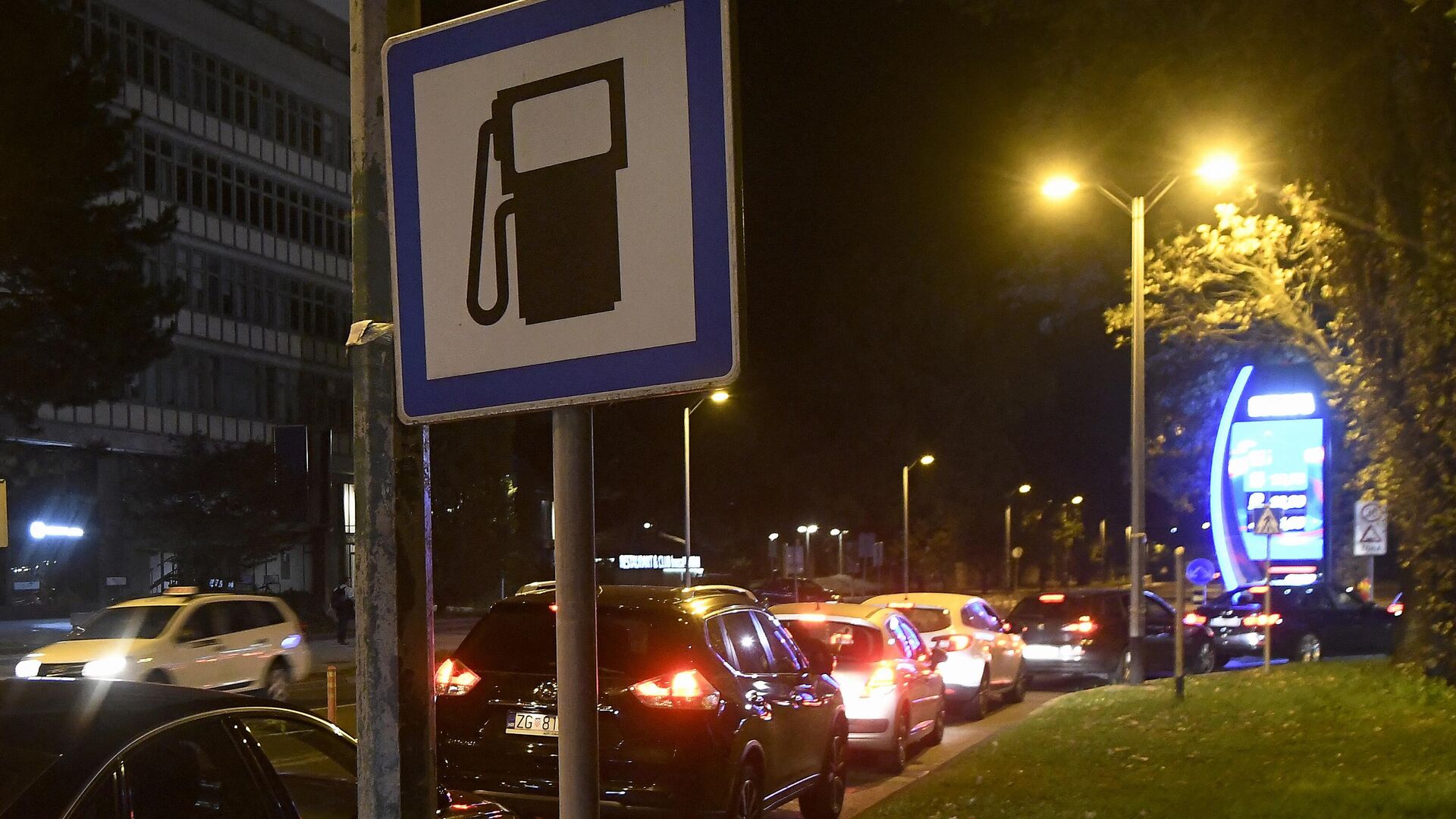https://sputnikglobe.com/20221130/see-no-problem-eu-may-face-diesel-crisis-amid-anti-russian-sanctions-1104884055.html
See No Problem? EU May Face Diesel Crisis Amid Anti-Russian Sanctions
See No Problem? EU May Face Diesel Crisis Amid Anti-Russian Sanctions
Sputnik International
After February 5, sanctions will cut off sea imports of Russian diesel and other refined products to the European Union. Russia remains a key supplier of... 30.11.2022, Sputnik International
2022-11-30T13:40+0000
2022-11-30T13:40+0000
2022-11-30T13:40+0000
energy crisis in europe
energy
energy crisis
russia
sanctions
diesel
https://cdn1.img.sputnikglobe.com/img/07e6/0b/1e/1104897027_0:160:3073:1888_1920x0_80_0_0_5557bc74a555346864124242f01e8058.jpg
Anti-Russian sanctions may push European economies which demand diesel towards turmoil since Moscow remains a key supplier of this fuel to the majority of Western nations. The United Kingdom and European Union imported about 600,000 barrels a day of Russian diesel-type fuel from November 1 to November 24, according to US media reports. Imports from Russia constitute 45% of all diesel-related shipments. In October Russia accounted for 34% of diesel shipments to the EU and UK. The average figure for the period from January to October was 51%.Economists and political scientists have stressed the obvious: the EU and UK economies are highly dependent on Russian hydrocarbon supplies and they won`t find a meaningful substitute in the near future. Energy sanctions against Russia have already backfired on European economies, pushing them into recession. The British economy is facing inflation that is topping four-decade highs. The EU states face the same problem - growing prices and monetary depreciation. According to European Central Bank estimates, annual headline inflation in the Eurozone will reach 8.1% this year and at least 5.5%in 2023. Millions of European citizens found themselves living on the brink of fuel poverty due to skyrocketing energy prices. However, the new sanctions also pose a challenge for Russia as Moscow will need to look for new customers. One of the candidates is Turkey, which already imported 3.7 million tons of diesel from Russia– around 30% of all Turkish diesel imports last year. Another candidate is Morocco and Tunisia.Russia has already started re-orienting its oil and gas exports to Asia. In October, Russia became India's biggest supplier of oil.
russia
Sputnik International
feedback@sputniknews.com
+74956456601
MIA „Rossiya Segodnya“
2022
News
en_EN
Sputnik International
feedback@sputniknews.com
+74956456601
MIA „Rossiya Segodnya“
Sputnik International
feedback@sputniknews.com
+74956456601
MIA „Rossiya Segodnya“
why eu may face diesel crisis, why sanctions are ineffective, how much diesel russia exports, fuel poverty, energy crisis
why eu may face diesel crisis, why sanctions are ineffective, how much diesel russia exports, fuel poverty, energy crisis
See No Problem? EU May Face Diesel Crisis Amid Anti-Russian Sanctions
After February 5, sanctions will cut off sea imports of Russian diesel and other refined products to the European Union. Russia remains a key supplier of hydrocarbons to the EU. Economists point out that Europe must reinforce its search for new suppliers or face a market crunch.
Anti-Russian sanctions may push European economies which
demand diesel towards turmoil since Moscow remains a key supplier of this fuel to the majority of Western nations. The United Kingdom and European Union imported about 600,000 barrels a day of Russian diesel-type fuel from November 1 to November 24, according to US media reports. Imports from Russia constitute 45% of all diesel-related shipments. In October Russia accounted for 34% of diesel shipments to the EU and UK. The average figure for the period from January to October was 51%.
Economists and political scientists have stressed the obvious: the EU and UK economies are highly dependent on Russian hydrocarbon supplies and they won`t find a meaningful substitute in the near future.
Energy sanctions against Russia have already
backfired on European economies, pushing them into recession. The British economy is facing inflation that is topping four-decade highs. The EU states face the same problem - growing prices and monetary depreciation.
According to European Central Bank estimates, annual headline inflation in the Eurozone will reach 8.1% this year and at least 5.5%in 2023. Millions of European citizens found themselves living on the brink of
fuel poverty due to skyrocketing energy prices.
However, the new sanctions also pose a challenge for Russia as Moscow will need to look for new customers. One of the candidates is Turkey, which already imported 3.7 million tons of diesel from Russia– around 30% of all Turkish diesel imports last year. Another candidate is Morocco and Tunisia.
Russia has already
started re-orienting its oil and gas exports to Asia. In October, Russia became India's biggest supplier of oil.


